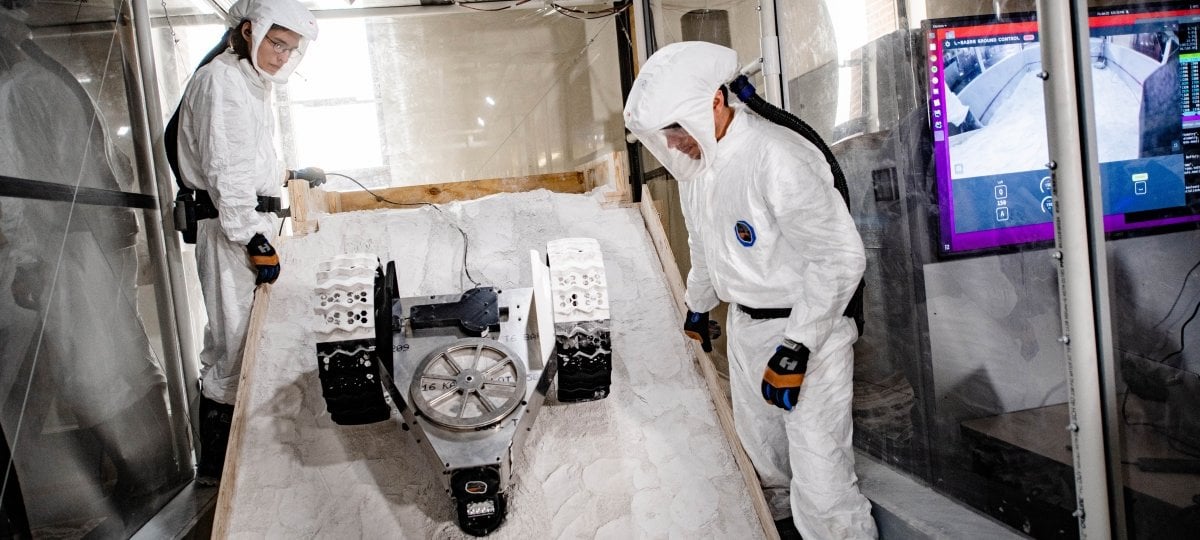Mechanical Solutions and Sustainability
Realize your career goal in design, simulation, manufacturing, testing, or one of the many other facets of the mechanical engineering discipline. Students in the Master of Science in Mechanical Engineering program can choose from a broad spectrum of mechanical engineering applications.
The graduate program in the Department of Mechanical and Aerospace Engineering—nationally ranked in the top 36% by U.S. News & World Report—offers a wide range of challenging and rewarding courses of study. The MS in Mechanical Engineering provides excellent preparation for doctoral studies or professional practice. The MS signature course work option affords students the flexibility to focus on the applications of mechanical engineering through expanded course work and engaging co-op experiences.
An Extensive Arena
Research-intensive MS options offer a project component. Students benefit from extensive research facilities on campus and at satellite locations. Expenditures for the department’s dynamic research community exceed $13 million annually. Active research thrust areas—many of which emphasize interdisciplinary collaboration—include
- Advanced power systems: developing critical technologies for clean, efficient, sustainable power systems, and modeling energy transport and conversion processes. Focus areas include engines, fuel cells, and wind turbines.
- Mechanics of multi-scale materials: constitutive modeling of biomaterials, cellular materials, nanomaterials, energetic materials, and composite materials. Research focuses on developing methods for modeling and characterization that will inform emerging technologies.
- Multidisciplinary engineering dynamic systems: collaborative research at the interface of engineering disciplines such as dynamics, vibration, acoustics, signal processing, and controls. Research focuses on the need for quieter, more reliable, safer products, machines, and equipment.
- Multi-scale sensors and systems: research into the design, fabrication, integration, and testing of physically and functionally compatible devices and components across the size spectrum. Focus areas include nanofabrication and characterization, micro-fabrication processes, and bio-nanotechnology.
- Space systems: development of innovative components, systems, and architectures for micro and nanosatellite applications.
Join one of the largest mechanical and aerospace engineering departments in the nation, and coalesce with scholars working toward achieving technological, environmental, industrial, and societal sustainability.
MS Plans
Whether your interests lie in research or course work, we offer a master plan to suit your educational goals.

Ranked 8th Best
Online Master's in Sustainability and Green Technologies in 2022
By Academic Influence
Michigan Technological University's online MS in Mechanical Engineering program has been featured among the Best Online Master’s in Sustainability and Green Technologies programs in the nation at AcademicInfluence.com. Learn more about getting a master's in green technologies.

